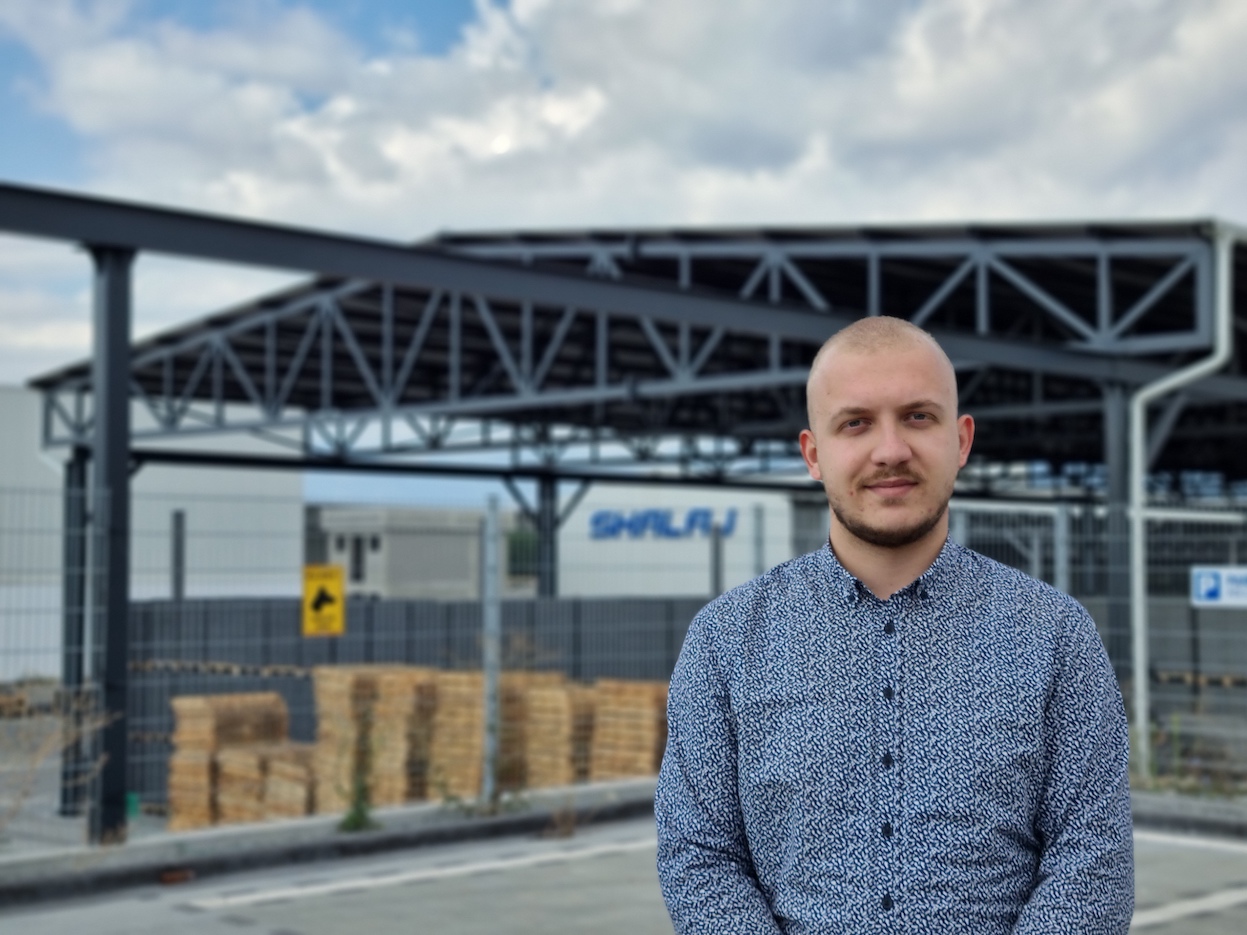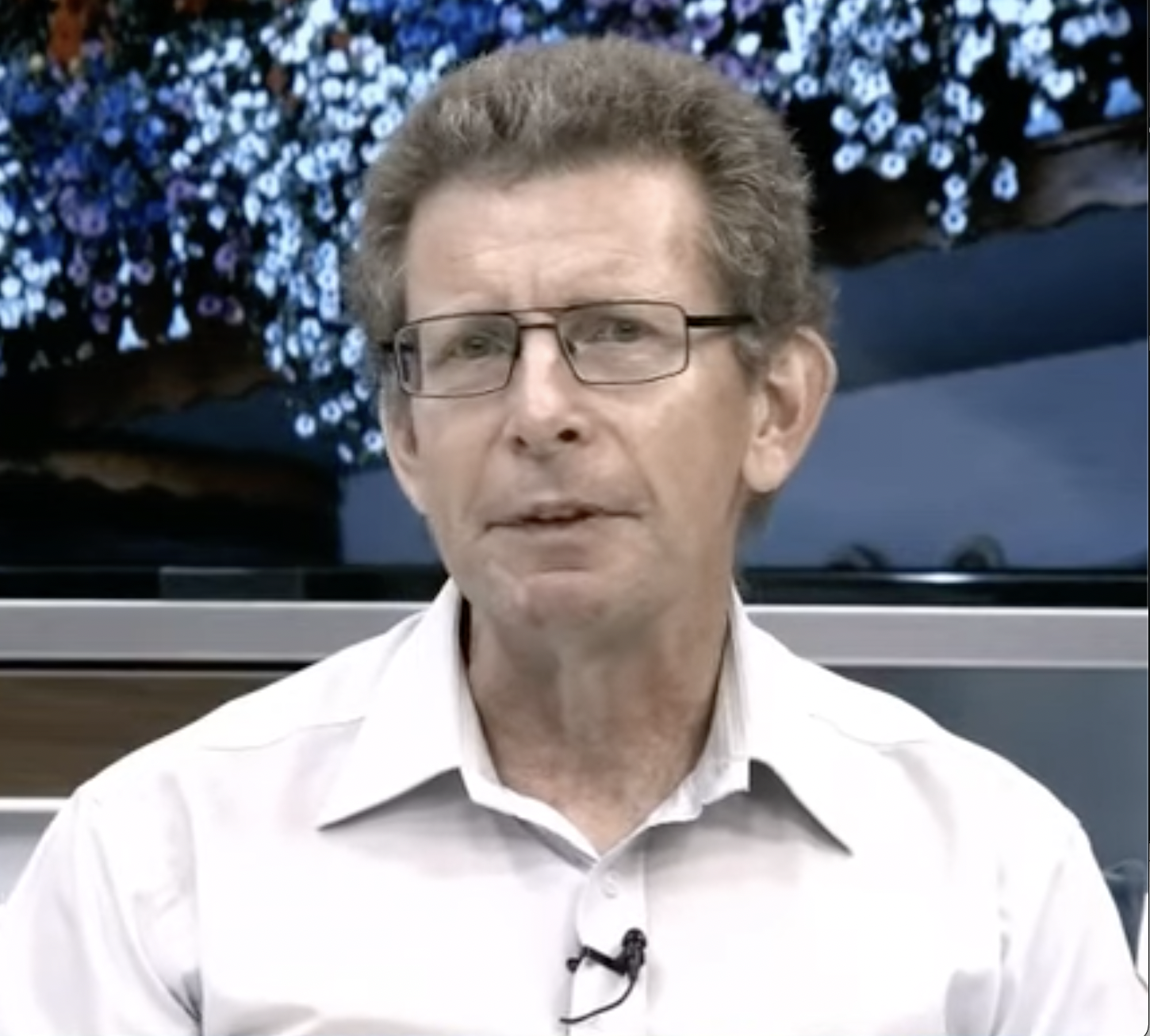
The construction industry in Kosovo is booming, and is a major contributor to economic growth. This is partially due to the demand for housing in and around the capital Prishtina/ Priština, as well as in other major cities. And as demand continues to grow, so does the need for skilled labour and construction materials. Yet as with so many products, most of the materials used in construction are imported, creating a negative trade balance for Kosovo. But change is on the horizon!
Some domestic producers have seen that they can increase their market share by improving the quality of their products to meet EU standards – which, in turn, opens access to lucrative EU markets.
“The quality of concrete paving we produce matches what you’d find anywhere in the EU.”
Endrit Shalaj, Quality Control Manager, Shalaj
Meet Shalaj, a family-owned business operating from Istog in western Kosovo. They have been investing for years to be ready for a share of this industry worth hundreds of millions of euros. Shalaj have always claimed that their paving materials are of German quality.
“The quality of concrete paving we produce matches what you’d find anywhere in the EU. Our company has been investing in technology and internal processes for many years to bring our products up to EU standards,” says Endrit Shalaj, the company’s Quality Control Manager.
Achieving proof of quality
However, it was only earlier in 2021 that the Shalaj company could back up their claim with a certificate. With support from an EU-funded project, Free Movement of Goods (FMG), they were able to understand what they needed to do to obtain the ‘CE’ marking. Coming from the French term ‘conformité européenne’, the abbreviation is the EU conformity mark used to certify that a range of products meet EU safety standards. FMG guided the company through the year-long conformity assessment procedure to prove that their product meets the requirements to gain access to the EU market.
“We cannot stress enough how happy we are to get the CE marking – something that we have been working to achieve for a very long time,” says Shalaj about the achievement that will pave the way to enlarging their share of the domestic market and will open new international opportunities.
But the learning didn’t stop there. All the experience and knowledge gained about the certification procedure, as well as domestic and EU legal requirements for construction materials, was shared with other manufacturers as part of the FMG project. One of the specialists involved in the process highlighted how this can give a boost to this important sector of the economy. “The FMG project showed that it is possible for Kosovo companies to achieve the CE marking. Now, the government and individual companies need to continue the work,” says Adam Pinney, a specialist in this field.
Sharing know-how and expertise from specialists like Mr Pinney as part of the three-year FMG project also helped improve product legislation and train enforcement agencies on making the market safer for workers and consumers. This included drafting legal texts, adopting European standards, accrediting conformity assessment bodies, obtaining calibration certificates, and training.

“The FMG project showed that it is possible for Kosovo companies to achieve the CE marking.”
Adam Pinney, FMG project specialist
This is part of Kosovo’s efforts to bring its legislation into line with EU laws, and to gradually develop a free trade area between the EU and Kosovo, where free movement of goods, services and capital are mutually guaranteed. Kosovo and the EU signed a Stabilisation and Association Agreement (SAA) in 2016 setting out mutual rights and obligations.
Achievements such as the CE marking for the Shalaj company are a clear sign that companies are more competitive, products are better and safer, and business partners can trust each other – true testimony as to how new roads are being paved between Kosovo and EU markets.
About the project
The aim of the ‘Support to the Free Movement of Goods (FMG)’ project was to develop quality infrastructure, market surveillance and consumer rights in order to improve production processes and increase product quality and safety.
This is part of a wider goal to support the government of Kosovo in creating a more sustainable business-friendly environment aligned with EU standards and body of law – known as the ‘acquis’ – as required by the Stabilisation and Association Agreement.
Photo credits: Free Movement of Goods, Shalaj
Some domestic producers have seen that they can increase their market share by improving the quality of their products to meet EU standards – which, in turn, opens access to lucrative EU markets.
Meet Shalaj, a family-owned business operating from Istog in western Kosovo. They have been investing for years to be ready for a share of this industry worth hundreds of millions of euros. Shalaj have always claimed that their paving materials are of German quality.
“The quality of concrete paving we produce matches what you’d find anywhere in the EU. Our company has been investing in technology and internal processes for many years to bring our products up to EU standards,” says Endrit Shalaj, the company’s Quality Control Manager.
Achieving proof of quality
However, it was only earlier in 2021 that the Shalaj company could back up their claim with a certificate. With support from an EU-funded project, Free Movement of Goods (FMG), they were able to understand what they needed to do to obtain the ‘CE’ marking. Coming from the French term ‘conformité européenne’, the abbreviation is the EU conformity mark used to certify that a range of products meet EU safety standards. FMG guided the company through the year-long conformity assessment procedure to prove that their product meets the requirements to gain access to the EU market.
“We cannot stress enough how happy we are to get the CE marking – something that we have been working to achieve for a very long time,” says Shalaj about the achievement that will pave the way to enlarging their share of the domestic market and will open new international opportunities.
But the learning didn’t stop there. All the experience and knowledge gained about the certification procedure, as well as domestic and EU legal requirements for construction materials, was shared with other manufacturers as part of the FMG project. One of the specialists involved in the process highlighted how this can give a boost to this important sector of the economy. “The FMG project showed that it is possible for Kosovo companies to achieve the CE marking. Now, the government and individual companies need to continue the work,” says Adam Pinney, a specialist in this field.
Sharing know-how and expertise from specialists like Mr Pinney as part of the three-year FMG project also helped improve product legislation and train enforcement agencies on making the market safer for workers and consumers. This included drafting legal texts, adopting European standards, accrediting conformity assessment bodies, obtaining calibration certificates, and training.

This is part of Kosovo’s efforts to bring its legislation into line with EU laws, and to gradually develop a free trade area between the EU and Kosovo, where free movement of goods, services and capital are mutually guaranteed. Kosovo and the EU signed a Stabilisation and Association Agreement (SAA) in 2016 setting out mutual rights and obligations.
Achievements such as the CE marking for the Shalaj company are a clear sign that companies are more competitive, products are better and safer, and business partners can trust each other – true testimony as to how new roads are being paved between Kosovo and EU markets.
About the project
The aim of the ‘Support to the Free Movement of Goods (FMG)’ project was to develop quality infrastructure, market surveillance and consumer rights in order to improve production processes and increase product quality and safety.
This is part of a wider goal to support the government of Kosovo in creating a more sustainable business-friendly environment aligned with EU standards and body of law – known as the ‘acquis’ – as required by the Stabilisation and Association Agreement.
Photo credits: Free Movement of Goods, Shalaj
Please wait while your video is being uploaded...
Don't close this window!